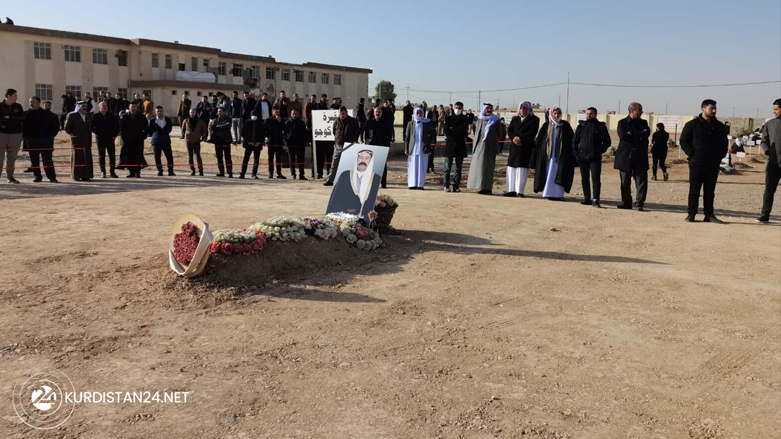41 Yezidi victims of ISIS to be buried in Kojo
"So far, 17 mass graves have been exhumed in Kocho and 104 Yazidi victims were buried earlier this year."

ERBIL (Kurdistan 24) – Forty-one Yezidi civilians who ISIS massacred in August 2014 will be buried in the village of Kojo in the presence of Iraqi officials and diplomats on Thursday.
The unearthing is the latest in the process of recovering the remains of people killed in ISIS's massacre of the Yezidi (Ezidi) minority after the terrorist group overran Sinjar in 2014.
Thursday's burial follows the previous burial of 100 Yezidi ISIS victims in Kojo in February.
Read More: Sinjar re-buries remains of more than 100 Yezidi 'Kocho victims'
Yezidi survivor and 2018 Nobel Peace Prize winner Nadia Murad is from Kojo. Yezidi men in Kojo were executed after ISIS took over the village. Kojo's women and girls were kidnapped and enslaved.
The United Nations estimates that ISIS killed around 5,000 Yezidi men and forced 7,000 women and girls in Sinjar into sexual slavery. A UN team investigating ISIS atrocities found "clear and compelling evidence" that the group committed genocide against the Yezidis.
In a press statement, the multinational organization pro-Yezidi rights organization Yazda said that five days of mourning will be observed after the burial.
"The UN-supported exhumation process in Kocho (Kojo) started in March 2019 and continued during 2020," the statement read. "So far, 17 mass graves have been exhumed in Kocho and 104 Yazidi victims were buried earlier this year."

The identification of the remains was carried out by the Iraqi Medico-Legal Department (MLD) of the Martyrs Foundation, with assistance from the UN Investigative Team for Accountability of ISIS (UNITAD) and the International Commission on Missing Persons (ICMP).
The MLD also called on family members of the missing to provide authorities with a blood sample to accelerate the DNA-matching process during a meeting with Yezidi's in Duhok on Nov. 24.
"Members of the Yazidi community who will be travelling back to Iraq from abroad are specifically asked to get in touch with MLD or Yazda in the coming days and weeks," Yazda said.
Although Iraq and UNITAD are doing their best to identify victims "hundreds of bodies remain unidentified due to a lack of human resources, and financial support," Yazda's Country Director in Iraq, Jameel Chomer, said in a press conference.
"We call on the international community to support both teams and to accelerate the processes of identification and exhumation in Sinjar," Chomer said.
